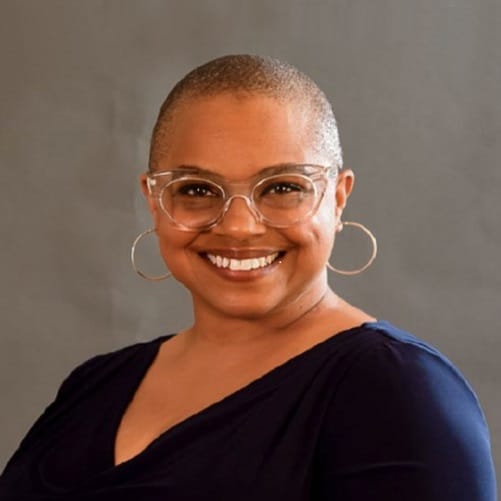Given the myriad disruptions of the coronavirus pandemic—including the financial challenges, health and safety concerns, and ongoing logistics around widespread remote work—there is a risk for other pressing priorities like diversity, equity and inclusion to fall off HR’s radar. That would be a serious misstep, says Jackye Clayton, DEI strategist at SeekOut, a provider of recruiting software.
Especially in light of the recent challenges organizations and their people are facing, employers, led by their HR leaders, should be more attuned than ever to building and retaining a diverse workforce—in order to lay the foundation for long-term recovery and success. It’s HR’s responsibility to be at the forefront of this work—asking the hard questions and making the tough decisions, she says.
Before Clayton dives into the future of diversity recruiting at her upcoming Spring HR Tech keynote session, she shared with HRE highlights from her own career of helping organizations implement effective DEI strategies.
HRE: What has been the most impactful DEI project you’ve been involved with?
Clayton: I was working on a diversity and inclusion project with Planned Parenthood in Texas and it was particularly interesting to work with the LGBTQ community and see some of the discrimination people have felt. Of course, I knew Planned Parenthood deals with sexual health but I didn’t realize there are many things that [healthcare professionals] can get wrong, as far as gender, pronouns, assumptions, the challenges the transgender community faces—both from the public and even within an organization that considers itself to be forward-thinking. That was a life-changer for me.
HRE: What’s one lesson you wish you would have known when you entered the recruiting/HR space?

Jackye Clayton
Clayton: I wish I would have known that every single hire can impact the company culture in just months. You wouldn’t think one person can flip everything on its ear that quickly—I had no idea. The other thing I wish I would’ve known, in particular with working within diversity and inclusion, is that it never stops. I’ve read articles after George Floyd with people saying they haven’t been able to see benefits yet [of enhanced D&I programming]. It’s frustrating to me but I always say, “We’re not going to know the results until at least one year.” I also wish I had known more about systemic racism as it relates to the workforce. It’s happening to all of us. That realization didn’t come into play until later in my career when I saw that this is often why organizations are making some of the decisions that they make.
See also: Despite progress, HR is just ‘beginning’ to address DEI
HRE: What is your advice for HR leaders on centering DEI despite the ongoing disruptions of the pandemic?
Clayton: It’s important to get comfortable being uncomfortable. That might mean dealing with issues going on in the news right now, and it might be asking questions that might be uncomfortable. Most HR professionals are used to that but, instead of waiting for it to come to us, we need to be the catalyst for change and keeping people accountable.
The other part is that, if someone isn’t in alignment with what you’re trying to do around D&I—just like if somebody wasn’t doing their job—you have to get rid of them. Some things are really simple and we try to make them more difficult. I get questions a lot about there being somebody in a company who’s making women feel uncomfortable with something inappropriate they’re doing or saying but they’re the top salesperson—yeah, I don’t care.
That’s not a hard question; if they’re not falling in line with the company mission and values, they’ve got to go. That seems to be a constant struggle for organizations but you have to follow through in order to own up to the commitment that we owe to our people at the organization and to the community as a whole.